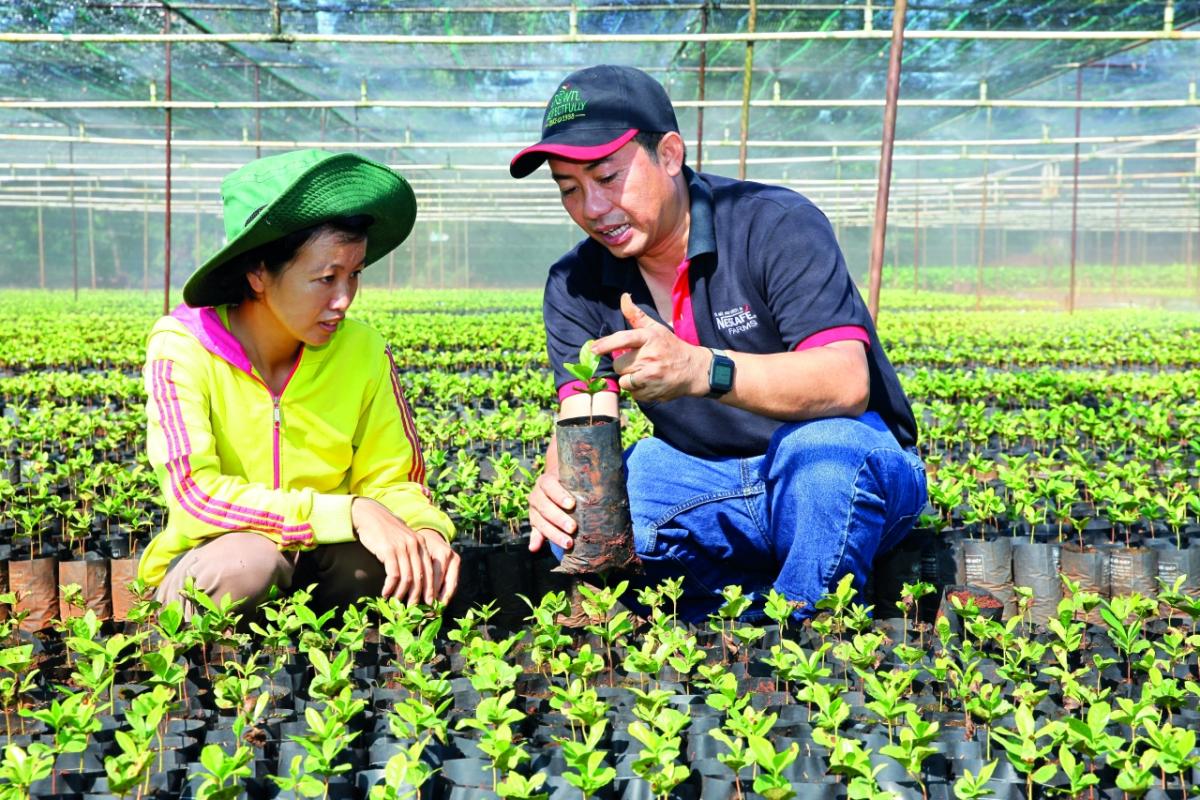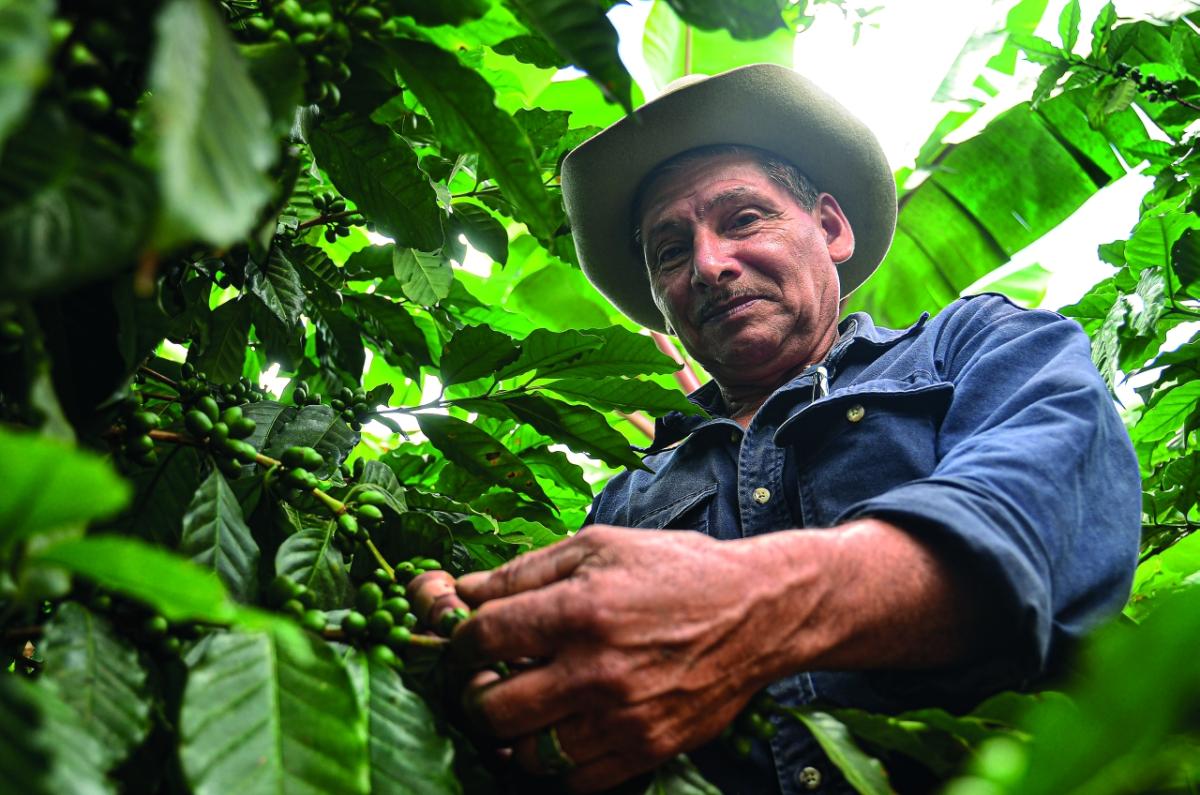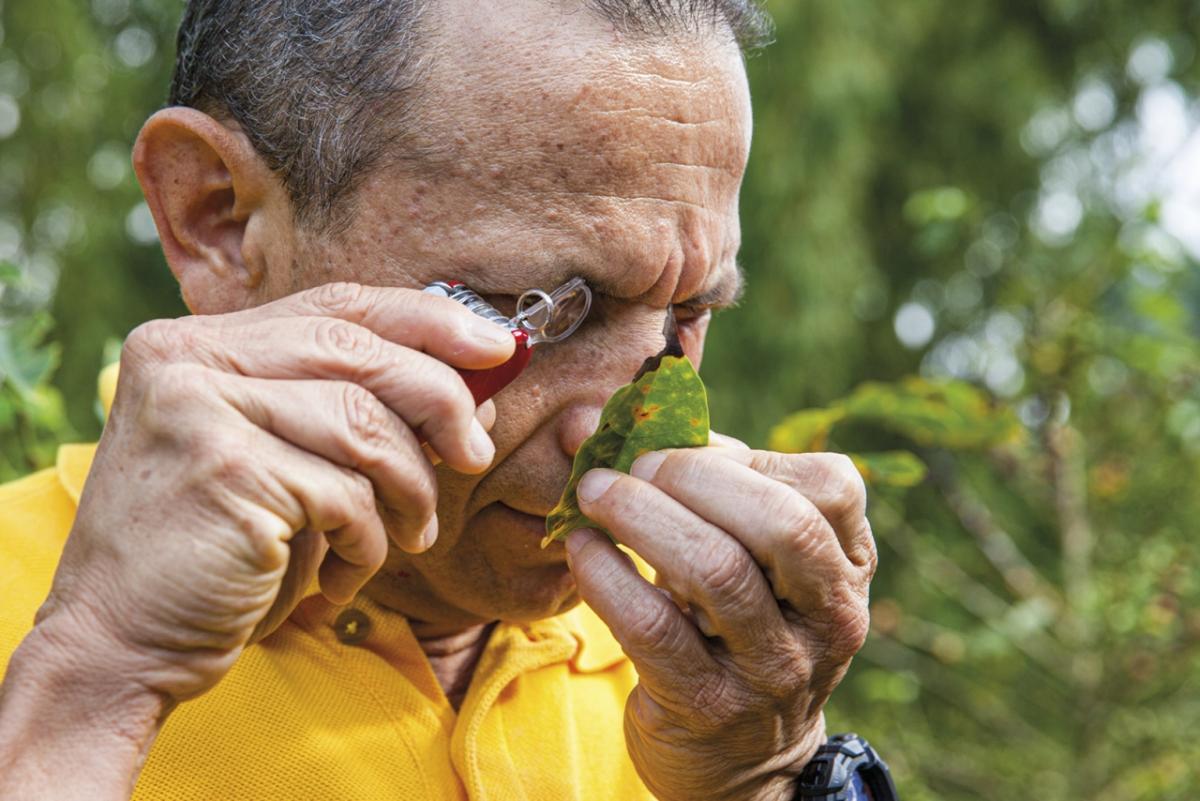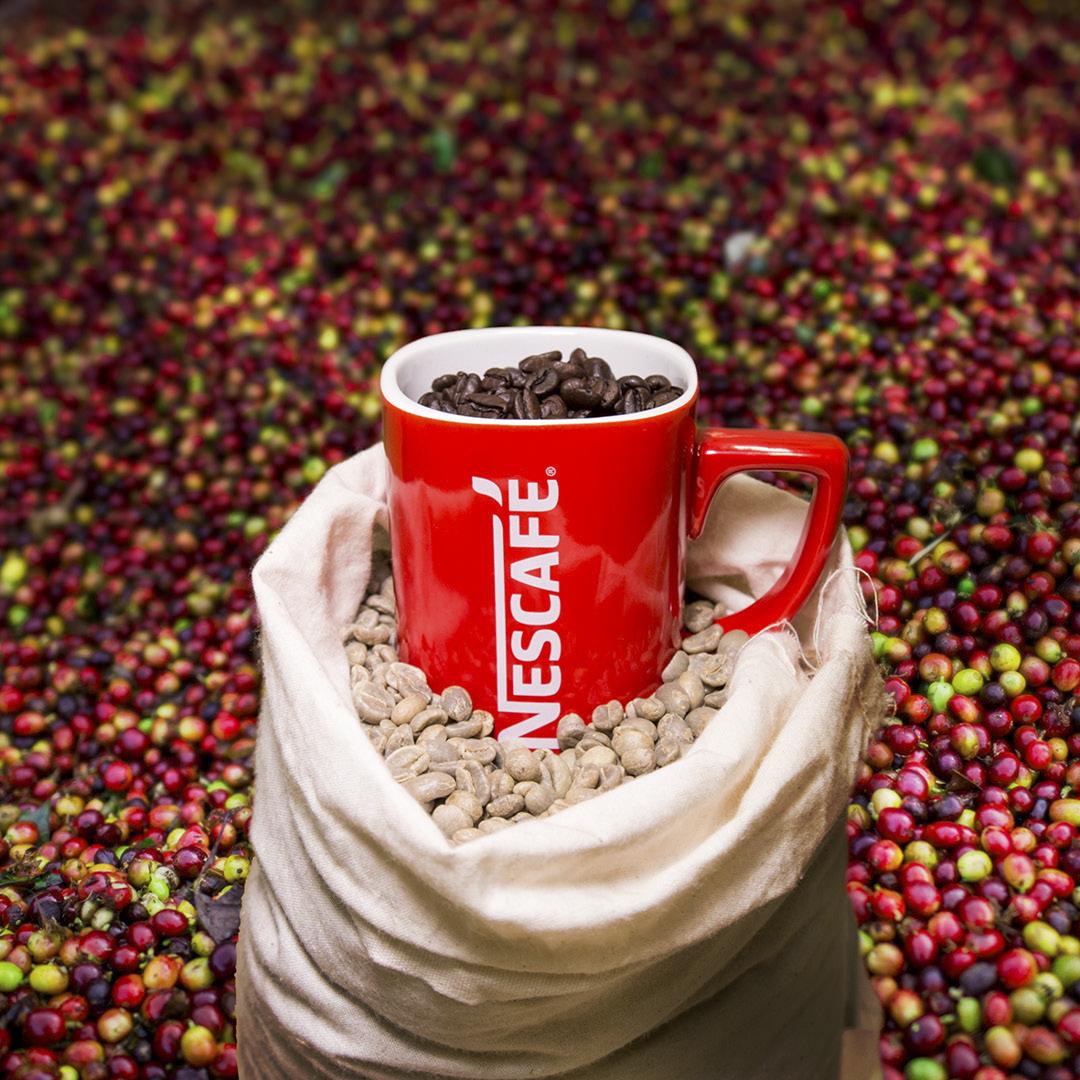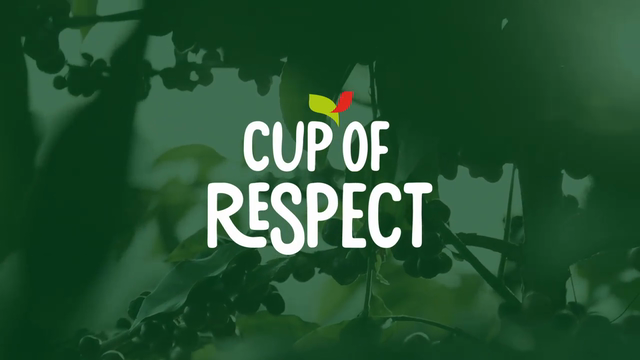The Power of Coffee
Striving for sustainability and equality
By Philipp Navratil, Senior Vice President, Head of Beverages Strategic Busines…
Next time you take a sip of coffee, stop for a second and consider its origins. I have been working in coffee for many years and I discovered my passion for it beyond the aroma and taste by meeting farmers and coffee communities around the world. Millions rely on the beans for their livelihood. For them coffee is a way of life that runs generations deep.
But this way of life needs support. Unfortunately, many coffee farmers and their families live in uncertainty, the health of their crops and their incomes under permanent threat. In 2021 we can all relate to the damaging effects of uncertainty.
I am proud to work for the world's most popular coffee brand; we are behind one in every seven cups of coffee drunk globally. I have learnt that meaningful change cannot happen in the sector without being deeply engaged on the ground and in collaboration with strong partners. We have launched the Nescafé Plan ten years ago to hold ourselves accountable. I am amazed by what we have achieved so far, however there is still so much that needs to be done. This is all the motivation we need to push further.
The Nescafé Plan
The Nescafé Plan was many decades in the making: we started working with farmers in the 1960s to help them adopt best practices and increase quality. But it began in earnest exactly ten years ago when a full and comprehensive plan was put in place with the umbrella goal of improving farmers lives. It has been a long and complex road, but we have learnt a lot. We first launched the plan in Mexico. Three years after that launch I was working on the ground with coffee farmers. I will always remember the conversations I had with them.
From Brazil, Colombia, Côte d'Ivoire and Kenya to Mexico, the Philippines and Vietnam, a broad array of initiatives have helped improve farmers' incomes, reduce the environmental impact of coffee farms and factories and increase rural communities' well-being. In 2020 we sourced nearly 650,000 tons of responsibly sourced coffee, 75% of our total supplies and by far the largest responsible sourcing volume from a single buyer.
The thing that makes me the proudest is seeing the impact of our work on the livelihoods of farmers. We have provided them with the right skills, tools and technical assistance so that they can get the most from their land. However, the work we have done needs to continue and the bottom line is, we need to do more.
A holistic approach
From farms to factories, there is an entire eco-system involved in bringing coffee to your cup. The future of coffee is not just about farmer income. We need to look at all aspects of our sector to ensure the type of success that has longevity and ripples through communities.
Take, for example, the Nescafé Youth Initiative that we set up in Honduras: here the next generation are taught about coffee farming as a modern business. Lessons cover everything from husbandry, harvesting and crop care to engineering techniques, methods for improving coffee quality and computer skills. One of the graduates from this initiative is Cesar Buezos from Honduras. Thanks to the program, when he is ready to take over the family farm, he will now have the skills needed to run it as a modern business with a big-picture plan.
Elsewhere, in Rwanda, female farmers are often the backbone of many families and they have been empowered to full socio-economic independence through knowledge-sharing that benefits the whole community for generations to come. I heard the story of Dorothee Uwimbabzi, a young mother of four who ran her own farm and took part in our empowerment program. She explained that The Kahawatu Foundation is helping her become a better farmer. But she said that the real benefit is that she can take care of her children's wellbeing and pay for their education until they all finish their studies.
Creating impact together
Exciting collaborations and necessary input from partners and 230 Nescafé agronomists, have been essential to improving efficiency and agricultural practices, enabling farmers to command a premium price for coffee grown sustainably. However, we cannot transform the coffee sector alone.
As we go forward, we need to work collaboratively with coffee farmers and their organizations, governments, NGOs, our suppliers and other roasters. We also cannot do this without the consumer. When you care about the source of the coffee that you're drinking there can be a real drive for change.
A regenerative and more inclusive future
We now have the opportunity to look back at a decade's worth of endeavors and use our learnings to push forward with renewed strength and experience. The pandemic has had enormous impacts on lives, livelihoods, economies and societies. It has exacerbated some of the systemic and complex challenges in coffee, including climate change, farmer profitability, labor shortages and the protection of human rights. It has underscored just how important and urgent our work is.
Going forward we are determined to do so much more. By 2025, Nescafé pledges to have 100% responsibly sourced coffee. As climate remains one of the biggest challenges in the coffee supply chain, we will continue to do our part to tackle it. We will reduce and remove coffee farming carbon emissions with regenerative agricultural practices and nature-based solutions, as well as lowering carbon emissions from our operations, and move to 100% recyclable or reusable packaging. These also are concrete steps that help Nestlé reach its 2025 packaging commitment and its 2050 net zero ambition.
So, as you enjoy your next cup of coffee, appreciate for a moment the people working hard to bring it to you. With your support we see a very bright future for coffee and the farmers who produce it. We want to help thousands more like Cesar and Dorothee to prosper across all of the regions where we source coffee.
Download the report: Our sustainable journey - Ten years of the Nescafé Plan (pdf, 4 Mb)
Media contact:
Nestlé S.A.
Corporate Media Relations
Email: mediarelations@nestle.com
Phone: +41 21 924 2200

